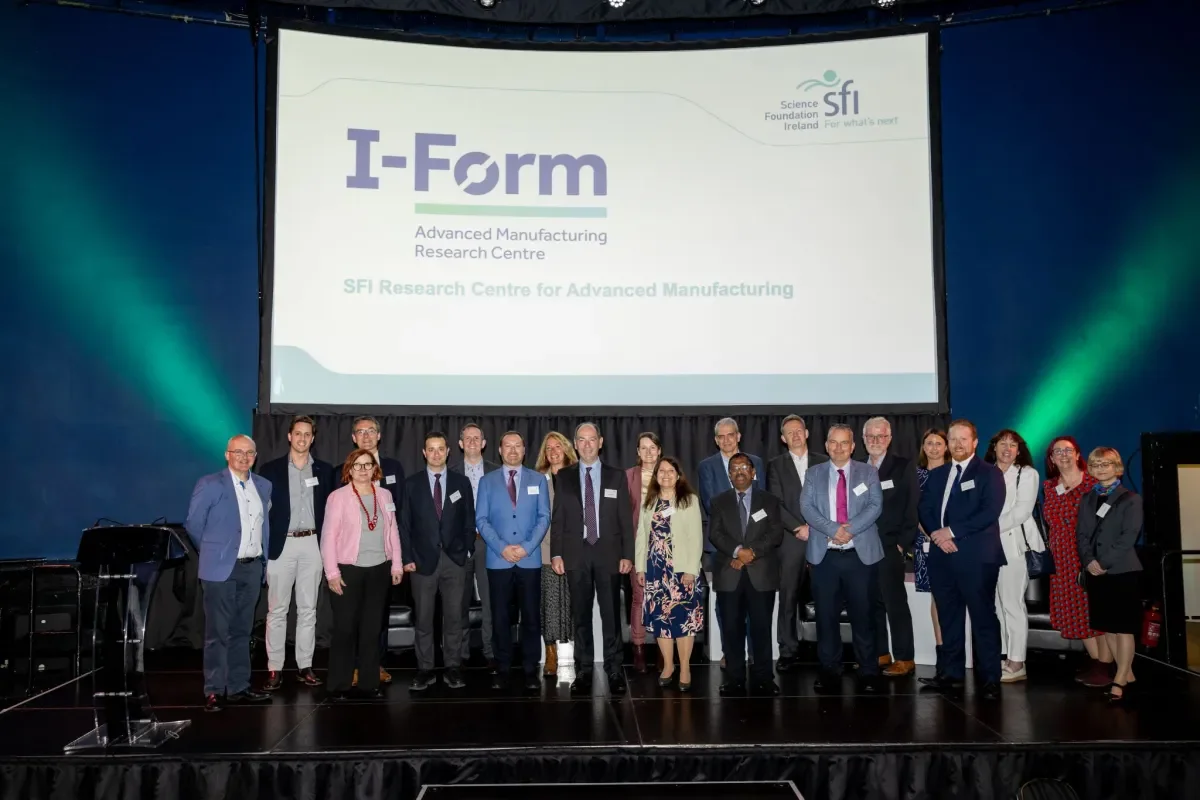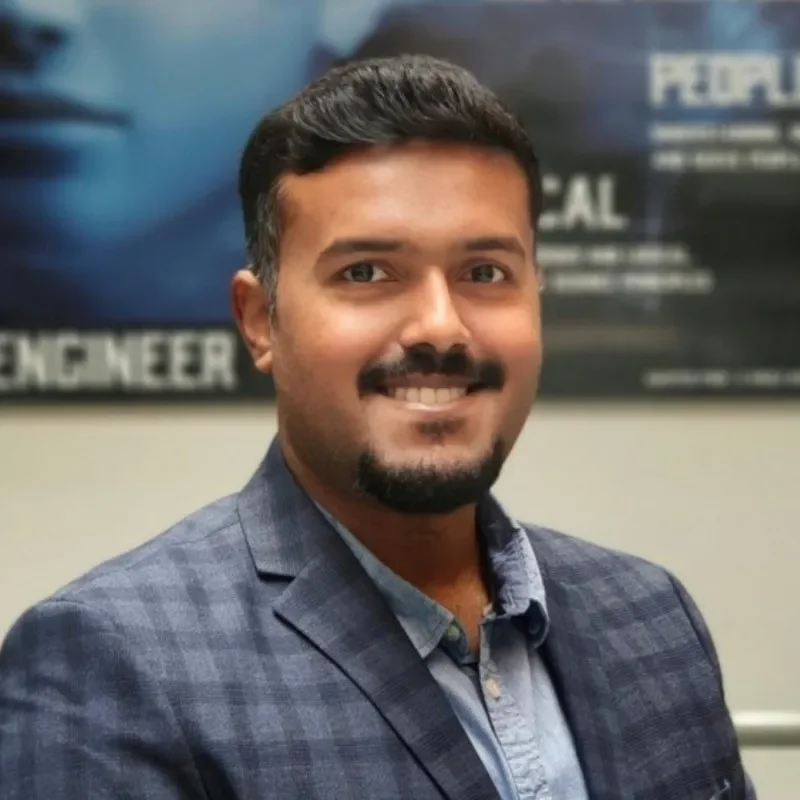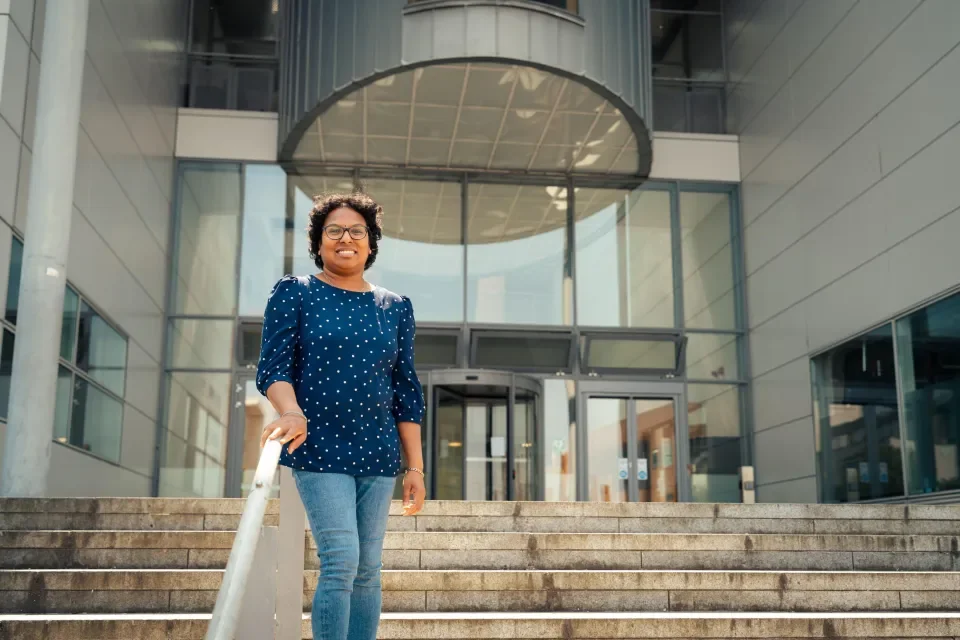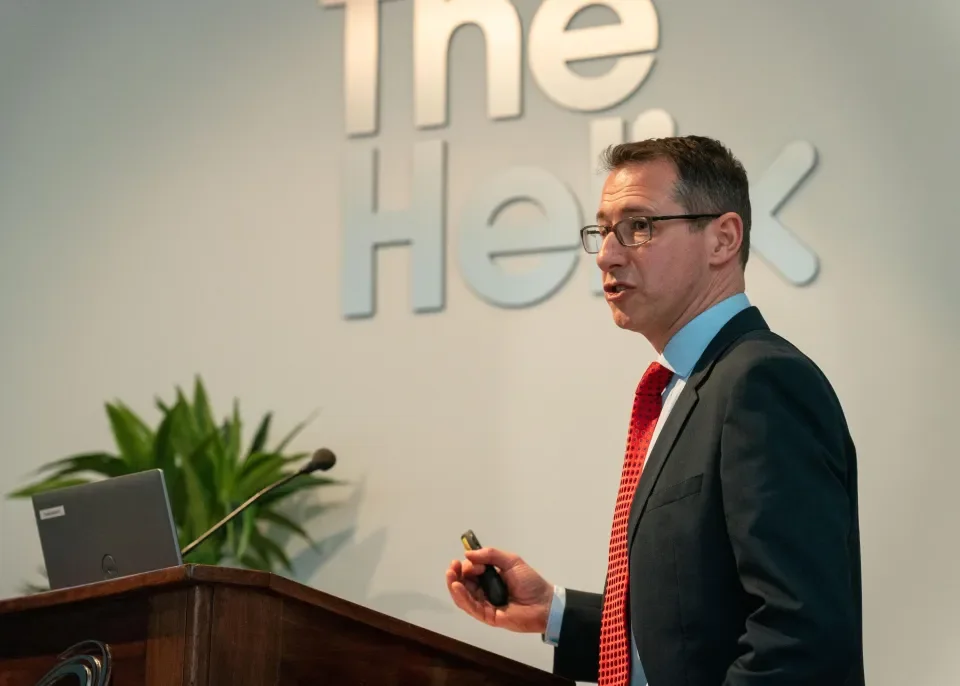
Research Newsletter - Issue 94: Spotlight

I-Form Phase 2
May 2024
Last week saw the launch of the second phase of the SFI I-Form Research Centre for Advanced Manufacturing at an event in the Mansion House in Dublin.
The next phase of the centre is supported by a €25 million SFI investment, part of a wider €104 million commitment spread across I-Form and three other SFI centres. Professor Dermot Brabazon (School of Mechanical & Manufacturing Engineering) is Deputy Director of the centre, which has its headquarters in University College Dublin.
Prof. Dermot Brabazon said:
“Within I-Form we have developed a collaborative group of top class researchers in the area of advanced manufacturing. The centre's output can be seen in its highly ranked journal publications, highly trained postgraduates and postdoctoral researchers, and in its support of Irish companies. Within I-Form Phase 2 over the next six years, we will see I-Form's work provide new solutions for the Digitisation and Sustainability of advanced manufacturing."
In addition to Prof Brabazon, Prof Christine Loscher from the School of Biotechnology is a Principal Investigator within I-Form.
The second phase of the SFI funded research will directly support 5 PD and 8 PhD researchers at DCU, over a period of six years. There are a further 14 PhD researchers funded via the DCU co-hosted Advanced Metallic Systems Centre for Doctoral Training and industry partners. These projects are largely multi-disciplinary and are supervised by 18 DCU academic staff across six Schools and thematic research areas.
These researchers cover a wide array of disciplines including additive manufacturing, computer sciences, sensing technology, Artificial Intelligence, Data Analytics, and advanced 3-D modelling.

Dr Josiah Chekotu
Among those to complete their PhD in phase one was Dr Josiah Cherian Chekotu. His research focused on the development of additive manufacturing processes for Nickel titanium (Nitinol) components. Nitinol is a key material used in the manufacture of heart stents and other medical devices. Josiah’s research has been highly successful with each of the four sections of his PhD yielding journal publications.
However, the project was not without its challenges. Embarking on the project in early 2019, Josiah initially made extensive use of the lab facilities at DCU. When labs closed due to the Covid-19 pandemic, Josiah was forced to make 3-D modelling a much larger part of his research process, which was not initially a big part of his planned research. This aspect of his research has gone on to influence other research projects, however. Dr Chekotu completed his PhD within the Centre for Doctoral Training in Advanced Metallic Systems, an I-Form collaboration between DCU, UCD, the University of Sheffield and the University of Manchester. Josiah is going on to working as a postdoctoral researcher on a project examining the application of AI in additive manufacturing.

Dr Sithara Sreenilayam
Dr Sithara Sreenilayam is a funded investigator at I-Form. Her ongoing research examines the use of copper as opposed to silver in the production of silicon solar cells. Currently, manufacturers use silver to produce the elements of the circuitry in these cells (the front electrode). Using copper instead would not only reduce the cost of production, but also potentially increase solar cell efficiency by 10%.
At the moment, it is difficult to reliably reproduce such cells at scale because current manufacturing methods for the metallic plating components of these cells produce weak or unreliable results.
Dr Sreenilayam’s research focuses on producing this metal plating using additive manufacturing, the process of using 3D model data to create objects layer by microscopic layer. Specifically, she uses pulsed laser ablation to apply inkjet printable copper nanoparticle based inks, a technique developed in I-Form. Should this new manufacturing method prove viable, the project could increase the sustainability and cost effectiveness of PV solar cell production and boost solar energy growth. Dr Sreenilayam also collaborates with I-Form colleagues on projects within the DCU Advanced Processing Technology Research Centre.

Professor Nicholas Dunne
I-Form has also played a part in impactful industry collaborations, including the bioadhesive bone fracture repair project led by Professor Nicholas Dunne (School of Mechanical & Manufacturing Engineering). This collaboration between I-Form, Biodesign Europe, DCU Invent and Irish medical devices company PBC Biomed has produced an adhesive biomaterial, or “bone glue.” The treatment is less invasive than using metal screws and more reliable than artificial alternatives.
The FDA has recently recognised the potential of the product by awarding it ‘breakthrough status’, a classification which recognises superiority to current commercially available products or treatments.
The next phase of I-Form holds great potential for innovations in medical devices, sustainable green energy, and a range of other fields. Projects funded by the centre reflect DCU’s commitment to research and collaboration with industry to benefit individual lives and societies at large.
If you wish to find out more or collaborate with the Centre please reach out to Professor Dermot Brabazon (dermot.brabazon@dcu.ie)
